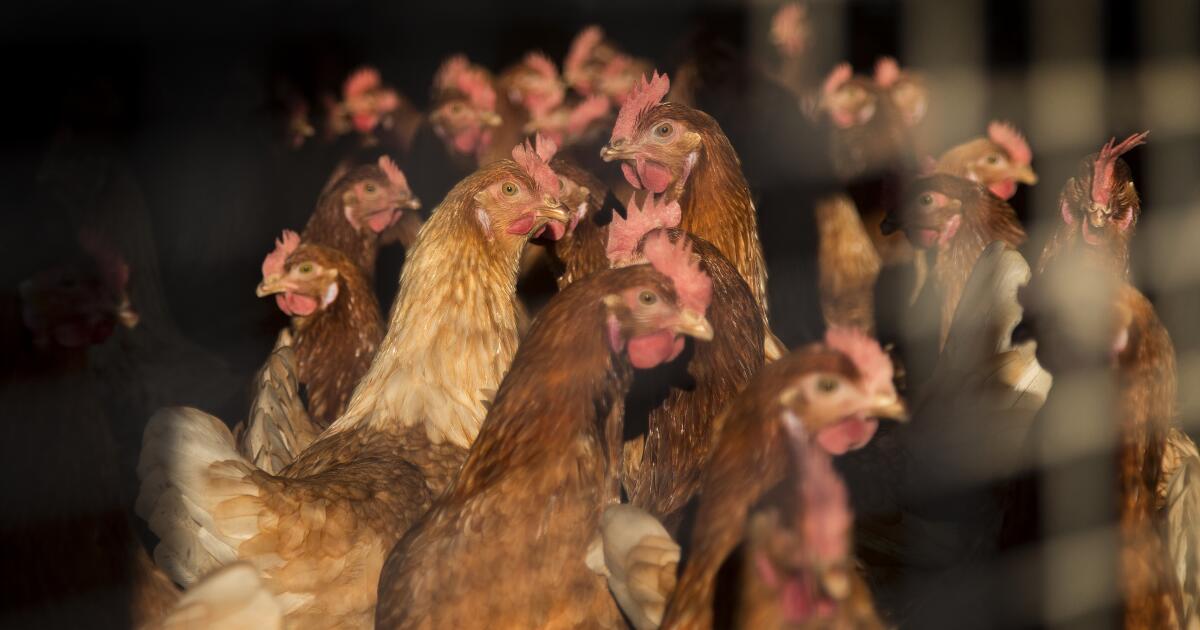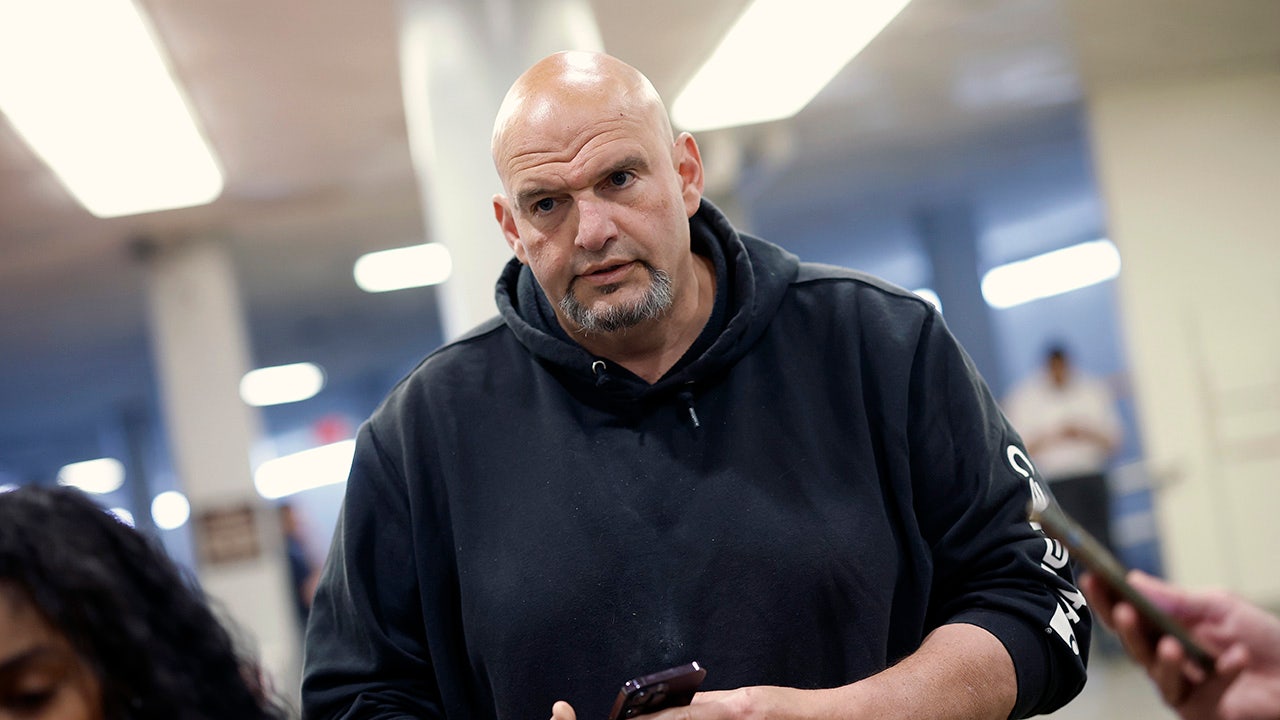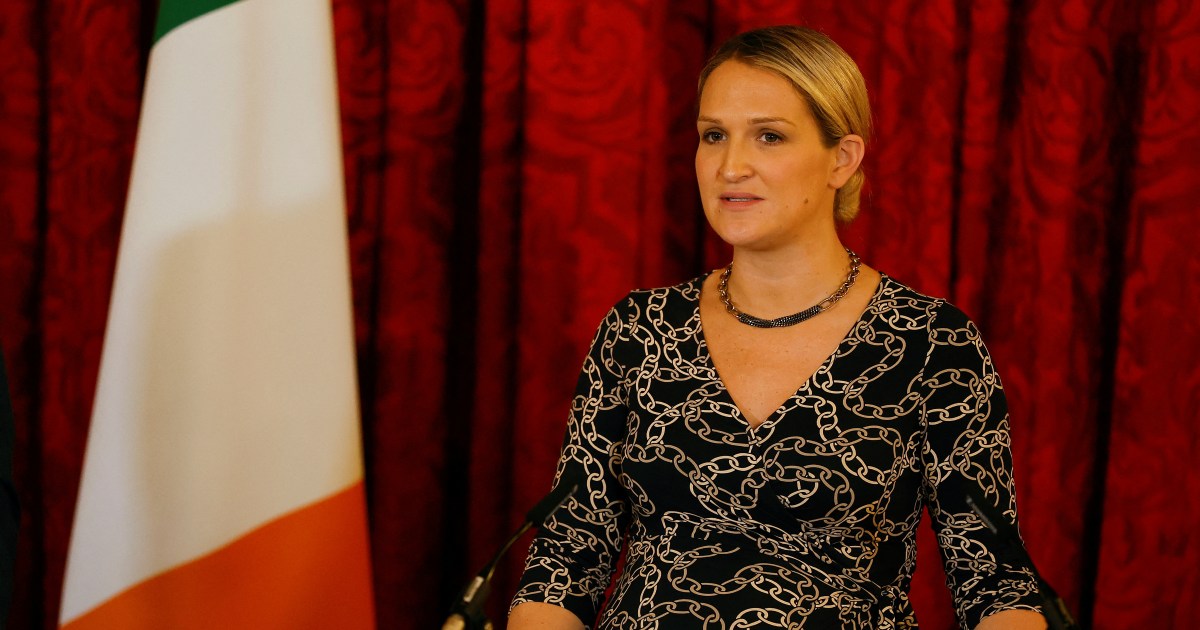Business
Column: Bowing to business and the right wing, the SEC issues a pathetically watered-down climate disclosure rule

Corporate managements nationwide undoubtedly breathed sighs of relief Wednesday, when the Securities and Exchange Commission approved a rule mandating their disclosures of greenhouse gas emissions and risks from global warming.
That’s because the rule is much weaker than its original version, which was first published in March 2022. The final version removed provisions requiring disclosure of some emissions produced by a company’s entire business chain and expanded exemptions for smaller companies.
But if managements think they’ll be able to avoid making more complete disclosures than the SEC is requiring, they have another think coming.
Far more investors are making investment decisions that are informed by climate risk, and far more companies are making disclosures about climate risk.
— SEC Chairman Gary Gensler
Shareholders are demanding more. So is the European Union, which has enacted rules requiring all companies with EU branches employing more than 250 workers, more than $42 million in European revenues or more than $21 million in capital assets to make the very disclosures that the SEC dropped from its mandate, starting in 2025.
More than 3,200 U.S. corporations are expected to become subject to the EU mandate.
Then there’s California, which last year enacted two laws requiring companies with annual revenues of more than $500 million and business activities in the state to disclose their climate-related economic risks; companies with revenues of more than $1 billion face more stringent requirements to report the full range of their emissions, similar to the EU mandate.
The U.S. Chamber of Commerce and several other business lobbying groups have already filed a federal lawsuit to overturn the California law, in which they estimate that the laws will cover 10,000 companies. (Rule of thumb: If the Chamber of Commerce is on one side of a lawsuit, you can rarely go wrong in assuming the public interest is on the other side.)
In any event, the laws have the support of numerous corporations with headquarters or sizable business interests in California, including Microsoft and Apple.
“We know that consistent, comparable, and reliable emissions data at scale is necessary to fully assess the global economy’s risk exposure and to navigate the path to a net-zero future,” Microsoft and 14 other businesses wrote in an Aug. 14 letter to state legislative leaders.
The state’s legislation, they wrote, “would break new ground on ambitious climate policy and would allow the largest economic actors to fully understand and mitigate their harmful greenhouse gas emissions.”
Meanwhile, 10 states with Republican political leaderships have signaled that they will sue to invalidate the SEC initiative, on the claim that the rule “exceeds the agency’s statutory authority.”
All this does more than hint at the headwinds the SEC faced in crafting its final disclosure rule. These included objections from many in the business community and conservative politicians pursuing their fatuous campaigns against ESG policies — environmental, social and governance — of corporations and investment firms.
The SEC’s Democratic majority, led by its chairman, Gary Gensler, also plainly harbored concerns about how its more expansive rule proposal might fare with a conservative federal judiciary, including a Supreme Court that seems to be searching for grounds to pare back the reach of federal regulatory agencies, if not invalidate their authority altogether.
Gensler observed after the commission vote that its goal was to provide for consistency in how companies report information that most are already compiling.
“Far more investors are making investment decisions that are informed by climate risk, and far more companies are making disclosures about climate risk,” he said. He didn’t specifically defend the SEC’s weakening of its initial proposal, except to say that the plan was revised “based upon public feedback.”
Let’s take a closer look at the issues and the political context.
First, here’s what the SEC’s rule encompasses.
At its core are disclosures about emissions of greenhouse gases, including carbon dioxide — emissions that trap heat within the Earth’s atmosphere, driving global temperatures higher. Global warming produces major changes in climatological manifestations — more storms of greater severity, droughts, melting ice producing a rise in sea levels, and so on.
Emissions fall into three general categories. Scope 1 emissions are those a company produces directly, say from its delivery trucks, boilers, refineries, manufacturing plants. Scope 2 emissions are those it produces indirectly, for example, from the power plants from which it purchases its electricity.
Scope 3 emissions are the most contentious. They’re produced by a company’s vendors when it orders supplies and consumers when they use its products. In general this is the largest category, accounting for 70% of total emissions for many businesses and as much as 90% for some. But they can be hard to define, calculate and manage.
The SEC originally contemplated requiring disclosures of all three categories. The final rule removed the Scope 3 reporting requirement entirely, and mandates reporting of Scope 1 and 2 emissions only when they have or are likely to have “a material impact on the registrant’s business strategy, results of operations, or financial condition.”
Those changes gratified some business organizations and their henchpersons in Congress, but disturbed environmental groups. Removing Scope 3 disclosures, said Danielle Fugere, president of the Berkeley-based environmental organization As You Sow, “creates a significant hole in shareholders’ understanding of climate risk.”
The fact is that full disclosure of these risks is something that regulators around the world, as well as shareholders and investors, have been demanding for years. Who’s against it? Head-in-the-sand Republicans and right-wing culture warriors, that’s who.
Hester Peirce, one of the two Republicans on the SEC, carried their ball into its meeting room. Weak as the final rule is, she wasn’t satisfied. As enacted, she groused in a statement Wednesday, the rule “still promises to spam investors with details about the Commission’s pet topic of the day — climate.”
That dismissal of global warming, an elemental threat to life on Earth, as a “pet topic” should tell you how fundamentally unserious GOP policymakers are about their responsibilities.
The anti-ESG cabal among state-level Republicans appears determined to undermine the interests of their own constituents, all for the sake of “owning the libs.”
Consider three states that have been among the leaders in banning investment firms from doing business with their governments because of the firms’ support for environmental policies: Texas, Florida and Louisiana.
Those are the three states that have led the nation in cumulative damage costs due to climate-related disasters from 1980 through 2022 — racking up expenses of $380 billion, $370 billion and $290 billion, respectively.
The general approach of disclosure critics has two threads. One is to pretend that the effects of global warming are irrelevant to the operations and the future of most businesses. The other is to assert that they’re too nebulous to calculate or, alternatively, that performing the calculations is just too burdensome.
Neither argument holds water.
I reported in 2021 that shareholders were already asking for more disclosures from managements about how their activities contribute to climate change, and more about how climate change will affect their destinies.
Fossil fuel companies weren’t the only targets of shareholder resolutions on these topics — they also appeared on the agendas of annual meetings of manufacturers, retailers, banks and many others.
In 2023, shareholder resolutions demanding climate and environmental disclosures dominated the proxy season with 146 filed, according to the Interfaith Center on Corporate Responsibility, which tracks ESG issues. Many won plurality support, but more than half dealing with climate were withdrawn after managements made commitments to their sponsors to meet their disclosure goals.
Investment watchdogs are on the case. Fitch Ratings, which analyzes corporate creditworthiness, says that as many as 20% of the 1,650 corporations it studied might face ratings downgrades due to their “climate vulnerabilities if such risks are not mitigated” by 2035. BlackRock, the world’s largest asset management firm, has said it’s not backing off from pushing corporations to disclose how they address climate-related risks.
The U.S. government’s National Oceanic and Atmospheric Administration identified 28 weather- and climate-related disasters costing $1 billion or more in 2023, including a drought, four floods, 22 severe storms and a wildfire.
2023 brought a record number of weather- and climate-related disasters costing more than $1 billion each to the U.S., with a toll of 492 deaths and damage of more than $90 billion.
(NOAA)
That was the highest number recorded since NOAA began taking count in 1980 and the ninth consecutive year in which 10 or more billion-dollar weather or climate disasters struck the U.S.
NOAA’s initial estimate is that the 2023 disasters cost more than $90 billion, but it’s certain to rise, since the ultimate price tag of the 18 disasters reported in 2022 came to more than $165 billion. The disasters took 492 lives.
To put it another way, any management of a large business in the U.S. that thinks it can evade the costs of global warming is living in a dream world.
Global warming deniers in business and politics persist in treating the climate crisis as merely a ginned-up topic of debate. That’s the gist of the business lobby’s lawsuit over the California laws.
The lawsuit treats the laws, bizarrely, as infringements on companies’ 1st Amendment rights. The state, the plaintiffs assert, is forcing “thousands of companies to engage in controversial speech that they do not wish to make” — speech they say is “political, and thus controversial.”
This is absurd on its face — tantamount to Donald Trump’s claim that by urging his followers to march to the Capitol on Jan. 6, 2021, he was just exercising his right to free speech.
This would allow any mandated disclosure to be reduced to a free-speech violation — after all, any such disclosure must be expressed as a series of words.
The courts, including the Supreme Court, have generally rejected assertions that mandated disclosures violate the 1st Amendment when the disclosures serve a legitimate government interest, such as protecting investors from fraudulent claims, or providing investors with important information — for example, the level of emissions by a public corporation or its potential exposure to global warming.
In this case, the business lobbies stretch to the breaking point their description of the state’s mandated emission disclosures as mere speech. They also assert that the state’s purpose is merely to “fuel pressure campaigns against business.”
They can’t make that claim stick with a straight face, so they misrepresent the laws. Here’s how they quote a state Senate analysis of one of the statutes: “‘For companies, the knowledge’ that their compelled statements ‘will be publicly available might encourage them to take meaningful steps’ to support the policy goals of the state.”
That’s a flagrant misquotation. Here’s what the analysis actually said: “For companies, the knowledge that their emissions will be publicly available might encourage them to take meaningful steps to reduce GHG emissions.” The words and phrases that the plaintiffs replaced with their own tendentious language are in italics.
It’s not the “compelled statements” that will be publicly available, but the actual level of their emissions. If the result is “pressure campaigns” aimed at prompting the companies to be cleaner, what’s wrong with that?
As for the state’s “policy goals,” the laws aren’t aimed at supporting a goal cherished by the liberal legislators of California, as the plaintiffs want you to think, but the national and international goal of reducing greenhouse gases.
None of this is to say that the Chamber of Commerce and its fellow lobbies won’t prevail in court. But it’s proper to note that when the best arguments they muster are based on lies and misrepresentations, they might not have many other arrows in their quiver.

Business
Angelina Jolie blames Brad Pitt’s NDA for scuttling winery sale, alleges abuse before plane altercation

Angelina Jolie’s legal team filed a motion Thursday to acquire Brad Pitt’s communications stemming from an “all-encompassing” nondisclosure agreement he wanted that purportedly tanked the sale of his ex-wife’s share of their Chateau Miraval winery to him.
The former Hollywood power couple’s protracted legal dispute over the winery — and its legacy for their six children — took another turn as Jolie’s team asked a judge to compel Pitt and his company, Mondo Bongo, to produce documents pertaining to his calling for a “more onerous NDA” in order to purchase Jolie’s share of the south-of-France winery.
The documents Jolie seeks, according to the Thursday filing in Los Angeles County Superior Court, are “highly relevant” and also likely to yield admissible evidence in the case, her team argued.
Her attorney, Paul Murphy, also accused the “Once Upon a Time … in Hollywood” Oscar winner of “unrelenting efforts to control and financially drain” Jolie, as well as “attempting to hide his history of abuse, control, and coverup.”
An attorney and a publicist for Pitt declined to comment Thursday on the new filing and allegations of prior abuse.
Pitt has accused Jolie and her company, Nouvel, of secretly selling her share of their winery and family home to “seize profits she had not earned and returns on an investment she did not make.” He claimed in a February 2022 lawsuit and subsequent amended complaints that his investment in the business “exceeded Jolie’s by nearly $50 million” and that Jolie had reneged on exclusive buyout negotiations they had agreed on in early 2021, when she originally said she wanted out of the business.
Pitt has been seeking a jury trial and the undoing of Jolie’s October 2021 sale to the Tenute del Mondo wine group, a subsidiary of the Stoli Group.
In October 2022, Jolie filed a cross-complaint that argued that the couple had no agreement regarding two-party consent to the sale of either party’s interest in the property. She also detailed allegations of abuse that prompted her to file for divorce from Pitt in 2016, ending their two-year marriage and much-talked-about 10-year romantic relationship. (The actors, although legally unmarried since 2019, have not yet finalized their drawn-out divorce.)
The “Inglourious Basterds” star has also complained that he can no longer enjoy his private residence in France, as it is now co-owned by strangers; Jolie contended Thursday that she and their children have not returned to the French estate since leaving it and boarding the fateful September 2016 flight that precipitated Jolie filing for divorce five days later.
In Thursday’s motion to compel, reviewed by The Times, attorneys for the “Girl, Interrupted” Oscar winner asked again for responses from Pitt to help them figure out his reason for pulling out of their implied agreement for him to buy Jolie’s stake in the winery. Pitt’s decision to pull out of the sale, her attorney said, “nearly broke” Jolie.
“If that sale had been completed, this lawsuit never would have happened. But at the last minute, Pitt ‘stepped back’ from his agreement to buy Jolie’s interest in Miraval, and the deal collapsed. The question at the heart of this case — and at the center of this motion — is why,” the motion said.
The answer, her attorney said, has to do with sealed documents Jolie submitted in the ex-couple’s separate but simultaneous custody dispute. The new filing referred to sealed March 2021 documents — titled “Testimony Regarding Domestic Violence” — that “apparently enraged Pitt” and led to him “stepping back” from the sale.
“When Jolie filed the evidence in the custody suit, she was careful to file it under seal so that no member of the public could see it. But Jolie’s sealed filing, which included emails, summaries of the family’s expected testimony, and other evidence, caused Pitt to fear that the information could eventually become public,” the document said.
Pitt then decided he could no longer rely on Jolie’s voluntary efforts to keep things private and demanded that she “contractually bind herself to that silence,” her filing said.
With that, her team indicated there was abuse of Jolie that predated the contentious 2016 private-plane flight. In referring to that sealed filing in the custody case — as well as another titled “Testimony of Minor Children” — her team argued that Pitt tried to force a more sweeping NDA on Jolie to conceal his alleged “personal misconduct, whether related to Miraval or not.”
Her team is seeking Pitt’s communications with the FBI, U.S. attorney’s office, the L.A. County Department of Children and Family Services and the Los Angeles Police Department regarding the private flight. She is also seeking information from DCFS about its investigation, drug and alcohol testing and a safety plan the agency purportedly required Pitt to undertake to address his conduct.
“While Pitt’s history of physical abuse of Jolie started well before the family’s September 2016 plane trip from France to Los Angeles, this flight marked the first time he turned his physical abuse on the children as well,” the new motion states.
According to an exhibit on a 2024 court declaration by Jolie attorney Murphy, an offer to turn over many of the communications requested by Jolie’s team was rejected last month by attorney Stella Chang, who told a Pitt attorney via email that his “proposal does not come anywhere close to providing the documents responsive to [the team’s requests], which Ms. Jolie needs to defend herself from Mr. Pitt’s frivolous allegations.”
Pitt was never charged in connection with the plane incident, either by the U.S. attorney’s office or the Department of Children and Family Services, which investigated the incident — and its allegation of child abuse — before the FBI got involved. The FBI decided in November 2016 to close its probe without filing any charges against the actor. People magazine reported that he was drunk during the incident, which “escalated more than it should have,” and asserted that “no one was physically harmed.”
Jolie never pressed charges, the filing said, “as she believed the best course was for Pitt to accept responsibility and help the family recover from the post-traumatic stress he caused.” It also alleged that Pitt refused to seek domestic violence counseling.
Pitt, in a 2017 GQ interview, admitted he had a drinking problem — saying, “I was boozing too much” — but said he was now sober. He said he was going to therapy after first going through two therapists who didn’t work out, and lamented his and Jolie’s marital woes being dragged out and misconstrued by the media with no “delicacy or insight.” Pitt has never argued that his behavior on the 2016 flight was acceptable.
His legal team said in a June 2023 court filing that while Jolie had backed out of the winery sale, purportedly over “restrictive language” requested in a mutual nondisclosure agreement, a year later she proposed an even broader NDA in their divorce case that would have required that “[o]ther than in court pleadings or testimony, neither party shall directly or through a party’s representatives make in a public forum any derogatory remark about the other party.”
The “Thelma & Louise” actor alleged in court documents that Jolie decided to sell her Miraval stake to the Stoli subsidiary after receiving an “adverse custody ruling” in their protracted divorce proceedings.
Pitt’s legal team last summer claimed that Jolie “vindictively” sold her stake in the winery behind his back and alleged that she “sought to inflict harm on Pitt,” subsequently revealing more details about the unraveling of the couple’s relationship. Jolie’s camp at the time insisted — and continues to do so in the new filing — that Pitt refused to complete a Miraval sale with Jolie “unless she agreed to being silenced” about his alleged abuse.
Now her team is claiming that Pitt attempted to cover up the alleged abuse by objecting to the children testifying on their custody preferences. The filing includes a May 2021 text message from Jolie to a friend (as an exhibit) relaying that she tried to sell the winery to Pitt per their agreement but that he was “really not being fair” and demanding “a lot of punishing restrictions.” The filing also outlined for the first time the language of the “more onerous NDA.”
Said restrictions, per the motion, were put forth in an “expansive” NDA that stated that the parties could not make any statements or take actions that would “disparage, defame, or compromise the goodwill, name, brand or reputation of Miraval Provence or any of its affiliated or direct and indirect shareholders,” including Jolie, Pitt, Pitt’s business partner and good friend Marc Perrin, and Familles Perrin SAS.
It also stated that the parties could not “commit any other action that could likely injure, hinder or interfere with the Business, business relationships or goodwill of Miraval Provence, its affiliates, or its direct and indirect shareholders.” Jolie refused to sign it, and “by June 3, 2022, the deal was dead,” the motion said.
Pitt’s NDA in the failed winery deal would have required, according to 2023 court documents filed by his legal team, that “[a]t no time for a legally binding period of four (4) years following the Closing Date, and, on a good faith basis, any period thereafter, shall the Parties (i) make any statements, or take any other actions whatsoever, to disparage, defame, or compromise the goodwill, name, brand or reputation of Miraval Provence or any of its affiliates or direct and indirect shareholders,” including Jolie, Perrin, Familles Perrin SAS and Pitt, who has been the celebrity face of the winery, so as not to hurt or hinder the business.
Jolie accused Pitt of gaslighting her and, according to the new documents, signed a power of attorney at that point authorizing her European lawyer, Laurent Schummer, to take over the sale process.
“Mr. Pitt refused to purchase Ms. Jolie’s interest when she would not be silenced by his NDA,” Jolie attorney Murphy, managing partner at the law firm Murphy Rosen LLP, said Thursday in a statement to The Times.
“By refusing to buy her interest but then suing her, Mr. Pitt put directly at issue why that NDA was so important to him and what he hoped it would bury: his abuse of Ms. Jolie and their family. After eight months of delays, this motion asks the Court to force Mr. Pitt to finally produce that evidence.”
A person close to Jolie who was not authorized to speak publicly about the case told The Times that Pitt “is drawing all this out of Angelina.”
“She does not want to be here, she does not want to be raising any of these facts, and she is doing it only because Pitt’s lawsuit against her is forcing her to defend herself. It’s incredibly sad and she just wishes he could move on and let her be,” the person said.
The person added that Jolie’s lawyers have emails, photos and testimony that was presented under seal in the custody case that would help her in this matter. However, the person said, if the case goes to trial, she “will be forced to use that evidence in the trial whether she wants to or not.”
Times assistant editor Christie D’Zurilla contributed to this report.
Business
Federal labor investigators say L.A. poultry plant used child labor and tried to cover it up

A federal judge issued a temporary restraining order on Monday to block a poultry processing plant in the city of Irwindale from using “oppressive” child labor.
The order came after investigators with the U.S. Department of Labor filed a lawsuit on Saturday alleging the poultry processor and its affiliated companies illegally employed children under the age of 18 to debone raw meat with sharp knives.
The department is seeking action forcing involved companies to forfeit money they made from selling products processed in facilities where minors were allegedly made to work in dangerous conditions.
The judge’s order involves three companies in the San Gabriel Valley — L & Y Food, Moon Poultry and JRC Culinary Group — that are all either owned, operated or managed by Fu Qian Chen Lu, who is also named in the lawsuit.
The Labor Department said in court documents that the companies continued to deliver and sell products even after agreeing to voluntarily refrain from shipping products following accusations of their use of child labor, and refused to provide information to investigators.
The companies hid 794 boxes of processed chicken and seven 1500-pound bins of chicken from investigators visiting the Irwindale facility, according to the court filings .
Federal officials and the poultry companies have presented dueling narratives of the child labor allegations.
Gregory W. Patterson, an attorney representing Chen Lu and other defendants named in the suit, accuses the Labor Department of planting an underage worker in the facility as part of its investigation, a claim the department has dismissed as “baseless.”
The crackdown by federal investigators comes as some of the country’s biggest consumer brands have come under broad scrutiny for child labor in their domestic supply chains amid revelations that children are working throughout American manufacturing and food production.
Investigators discovered children deboning poultry at the plant after visiting the facility in the city of Irwindale on Mar. 20 for a civil search warrant, the lawsuit said. Operators of the facility continued to process products, even after the Labor Department raised objections during its search warrant, in violation of federal laws prohibiting sale of products “tainted by child labor,” according to the lawsuit.
The “hot goods” provision of the Fair Labor Standards Act prohibits companies from selling products from locations flagged for child labor use in the prior 30 days.
U.S. District Judge Otis D. Wright II in his Monday decision issued a temporary restraining order requiring the businesses to stop using child labor, provide the Labor Department with information it is requesting related to its investigation, and refrain from shipping any poultry from facilities accused of employing child labor.
“In light of the immediacy of irreparable harm pending the Court’s review of this action, the Court finds a temporary restraining order warranted,” Wright wrote in his order on Monday.
Barring immediate action, he said, companies named in the lawsuit “will continue to employ oppressive child labor to the risk of minors’ life and limb; hot goods may enter the stream of commerce; and Defendants will continue to thwart Plaintiff’s investigation.”
Patterson, the attorney representing Chen Lu and other defendants, said in an emailed statement that the labor department had a 17-year-old “gain employment with Moon Poultry under false pretenses by presenting a fake government identification” and “directed this person to work in a hazardous area of the Moon Poultry facility in Irwindale.”
Patterson alleged that the Labor Department aimed to manufacture a child labor claim to “strengthen its negotiating hand” in an investigation about overtime wages that had not been paid to workers.
“The defense counsel’s allegations are false. The Labor Department has previously responded to the defense counsel on this issue, but he has nevertheless chosen to press his baseless claims,” said Marc Pilotin, regional solicitor for the Labor Department, in an emailed statement.
The Labor Department has investigated other poultry processing plants in California in recent months.
In December, federal investigators found grueling working conditions at two poultry plants in City of Industry and La Puente operated by Exclusive Poultry Inc. as well as other “front companies” owned by Tony Elvis Bran.
Children as young as 14 stood for long hours cutting and deboned poultry and operating heavy machinery, the labor department said. The workers came primarily from Indigenous communities in Guatemala.
The poultry processor, which supplies grocery stores including Ralphs and Aldi, was ordered to pay nearly $3.8 million in fines and back wages.
An investigation published in early February by the Fresno Bee detailed dangerous and sometimes deadly conditions for primarily Latino immigrant workers at Pitman Farms in the Central Valley, which produces the Mary’s Free Range Chicken brand.
Business
Money Talk with Liz Weston: Managing mortgage debt in retirement

Dear Liz: My husband and I are Gen Xers who are renting. We have enough cash from the sale of our last home to make a small down payment on another. If we moved to a more affordable community, we could manage the payments, but it would still be a stretch. That scenario would not have bothered me 10 years ago, but now I’m close to 50. Is it a good idea to take on a mortgage at this point? What is the best way to ensure I can afford to keep the roof over my head when I can no longer work full time?
Answer: Having a mortgage in retirement used to be uncommon, but that’s no longer the case. The Joint Center for Housing Studies of Harvard University found 41% of homeowners 65 and older had a mortgage in 2022, compared with 24% in 1989. Among homeowners 80 and over, the percentage with mortgages rose from 3% to 31%.
The amounts owed have skyrocketed as well. Median mortgage debt for those 65 and older rose more than 400%, from $21,000 to $110,000 (both figures are in 2022 dollars). Median mortgage debt for those 80 and over increased more than 750%, from $9,000 to $79,000.
Mortgage debt doesn’t have to be a crisis if you can afford the home and the payments don’t cause you to run through your retirement savings too quickly. In fact, some retirees are better off hanging on to their loans. It may not make sense to prepay a 3% mortgage when you can earn 5% on a certificate of deposit, for example. Paying off a mortgage early also could leave you “house rich and cash poor,” with not enough savings to deal with emergencies and later-life expenses.
But the key is affordability. A mortgage that’s a stretch now might become easier to afford if your income rises, which was almost a given when you were younger. Now, however, you’re approaching the “dangerous decade” of your 50s, when many people wind up losing their jobs and failing to ever regain their former pay, according to a study by ProPublica and the Urban Institute.
Renting has its risks as well, of course. You aren’t building equity and you typically have little control over rent increases, other than to move.
For help in sorting through your options, consider talking to a fee-only, fiduciary advisor. Among the most affordable options are accredited financial counselors and accredited financial coaches, who typically are well-versed in the money issues facing middle-class Americans. You can get referrals from the Assn. for Financial Counseling & Planning Education at www.afcpe.org.
Dear Liz: I’m a CPA and getting conflicting answers from the Social Security office about a case I’m working on. Both clients are 70 and they’re considering legal separation or divorce. She took Social Security at 62 and receives about $1,500 a month before deductions. He started Social Security at 70 and receives about $4,600. How would her Social Security change at his death or their divorce, if she doesn’t remarry?
Answer: Based on the amounts involved, both parties are receiving their own retirement benefits and those aren’t affected by divorce, said William Reichenstein, a principal at Social Security Solutions, a claiming strategy site. (If the wife were receiving spousal benefits, those would continue after divorce as long as the marriage lasted at least 10 years and she did not remarry.)
If the husband dies and they haven’t divorced, the wife would be entitled to survivor benefits equal to his full monthly benefit amount ($4,600, plus any future cost of living increases). If they divorce and the marriage lasted at least 10 years, she also would be entitled to his full amount. Remarriage wouldn’t affect her divorced survivor benefit since she’s over 60, Reichenstein said.
Liz Weston, Certified Financial Planner®, is a personal finance columnist for NerdWallet. Questions may be sent to her at 3940 Laurel Canyon, No. 238, Studio City, CA 91604, or by using the “Contact” form at asklizweston.com.
-

 Kentucky1 week ago
Kentucky1 week agoKentucky first lady visits Fort Knox schools in honor of Month of the Military Child
-
News1 week ago
Maryland high school student arrested after authorities discovered a 129-page document detailing school shooting plan, police say | CNN
-

 World1 week ago
World1 week agoIranian media says three drones downed after explosions heard in Isfahan
-

 World1 week ago
World1 week agoShipping firms plead for UN help amid escalating Middle East conflict
-

 Politics1 week ago
Politics1 week agoIsrael hits Iran with 'limited' strikes despite White House opposition
-

 Politics1 week ago
Politics1 week agoICE chief says this foreign adversary isn’t taking back its illegal immigrants
-

 News1 week ago
News1 week agoThe San Francisco Zoo will receive a pair of pandas from China
-

 Politics1 week ago
Politics1 week ago'Nothing more backwards' than US funding Ukraine border security but not our own, conservatives say















